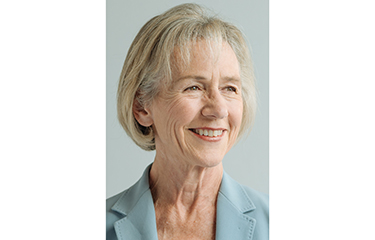Canada's Department of Fisheries and Oceans (DFO) has announced a two-year renewal of licenses for marine finfish aquaculture facilities outside the Discovery Islands in British Columbia, Canada.
The decision by the government impacts salmon farms run by Mowi, Grieg, and Cermaq, and according to a release by the DFO, is part of a planned transition from open-net pen salmon aquaculture in B.C. The decision is part of an ongoing government push to phase out all net-pen fish farming in the area – Canada’s Liberal Party and Canadian Prime Minister Justin Trudeau have called for a shift away from net-pen farming by 2025.
With the new ruling, salmon farms in the B.C. will be able to continue operating for two years as the DFO starts the process of transitioning away from open-net pen aquaculture. The DFO plans to share a draft framework for transitioning, and said the plan will rely on input from the “government of British Columbia, First Nations, industry, local governments, stakeholders, and British Columbians” in consultations that will run until “early 2023.”
Canadian Minister of Fisheries, Oceans, and the Canadian Coast Guard Joyce Murray said the decision to move away from open-net pen aquaculture is directly based on protecting wild stocks of salmon in the region.
“Wild Pacific salmon are an iconic keystone species in British Columbia that are facing historic threats. Our government is taking action to protect and return wild salmon to abundance and ensure Canada is a global leader in sustainable aquaculture,” Murray said. “Working together with First Nations, the province, industry, and British Columbians, we will transition the aquaculture industry to one which leads with new technology, while reducing or eliminating interactions with wild Pacific salmon. We recognize the urgent need for ecologically sustainable aquaculture technology, and we are prepared to work with all partners in a way that is transparent and provides stability in this transition.”
The decision to renew the licenses was welcomed by the B.C. Salmon Farmers Association (BCSFA) and the Canadian Aquaculture Industry Alliance (CAIA), who also called for greater certainty.
"The renewal of licenses in British Columbia is a positive first step and confirms the voices of industry and First Nations, in whose territories we operate, have been heard," BC Salmon Farmers Association Interim Executive Director Ruth Salmon said in a release. "This announcement will give us the opportunity to work with all levels of government, including First Nations, to secure a future that will benefit Indigenous and non-Indigenous coastal communities, meet the global demand for healthy, affordable seafood, and support the continuation in protection and restoration of wild Pacific salmon."
The renewal of licenses for two years has highlighted a need for longer license periods, CAIA President and CEO Timothy Kennedy said.
“While we are encouraged that licenses have been renewed, we genuinely needed a six-year license term that reflect[s] our production cycle,” he said. “Longer license terms would have provided the confidence to further invest in innovation and technology, leading to continued operational and sustainable improvements, job creation for coastal communities, and greater food security.”
According to the BCSFA, as of 30 June all salmon farms in B.C. will be required to have consent from the First Nations whose territories they operate in.
“Currently about 80 percent of the salmon produced in B.C. is done in agreement or partnership with First Nations,” BCSFA Communications Manager Michelle Franze told SeafoodSource. “However, any farms that do not have an agreement in place, the companies will not be seeking license renewals for.”
The BCSFA called the DFO decision a move to advance a dialogue on the industry's presence in British Columbia.
“The decision on license renewals appears to be an opportunity to work with all levels of government, including First Nations in whose territories we operate, to develop a transition plan for the future of our sector that will benefit Indigenous and non-Indigenous coastal communities while providing assurances that wild salmon are not impacted by salmon farming,” Firenze said.
Mowi Canada West, which will have 35 licenses renewed thanks to the DFO’s decision, said it plans to continue to work with “all levels of the government, including First Nations” on the transition plan. However, the details of the plan have still not been released, according to Mowi.
Despite the ruling, the future of salmon farming in the Discovery Islands in British Columbia remains unclear. The DFO announced in late 2020 that all salmon farms in the Discovery Islands – located in British Columbia – were to be phased out in 18 months and effectively eliminated entirely by 30 June, 2022.
That push, B.C. communities said, completely “blindsided” salmon farmers in the region. It also led to Mowi Canada West announcing the closure of operations at its Dalrymple salmon hatchery near Sayward, British Columbia, Canada in October 2021, and later it announced the closure of a processing plant in Surrey, British Columbia for similar reasons.
Since the initial announcement, a Canadian court overturned the order to close the farms. Canada Federal Court Justice Elizabeth Heneghan said the original order by Jordan breached the rights of salmon farmers. In her 64-page ruling, Heneghan found Jordan’s order didn’t meet the standards of procedural fairness.
As a result of the decision, salmon farms in the Discovery Islands have been, for now, allowed to continue operating and the DFO said that in the wake of the decision by the court the DFO will begin conducting consultation with First Nations communities and current license holders in the Discovery Islands “on the future of salmon aquaculture licenses in this area.” Those consultations, it added, will lead to a final decision expected in January 2023.
Advocates for salmon farming in the region are calling on the government to continue allowing salmon farming in the region to meet the growing demand for sustainable foods.
Salmon farming in Canada is a CAD 4 billion (USD 3 billion, EUR 2.9 billion) industry that employs 14,500 Canadians, according to the BCSFA.
Photo courtesy of the Department of Fisheries and Oceans, Canada







